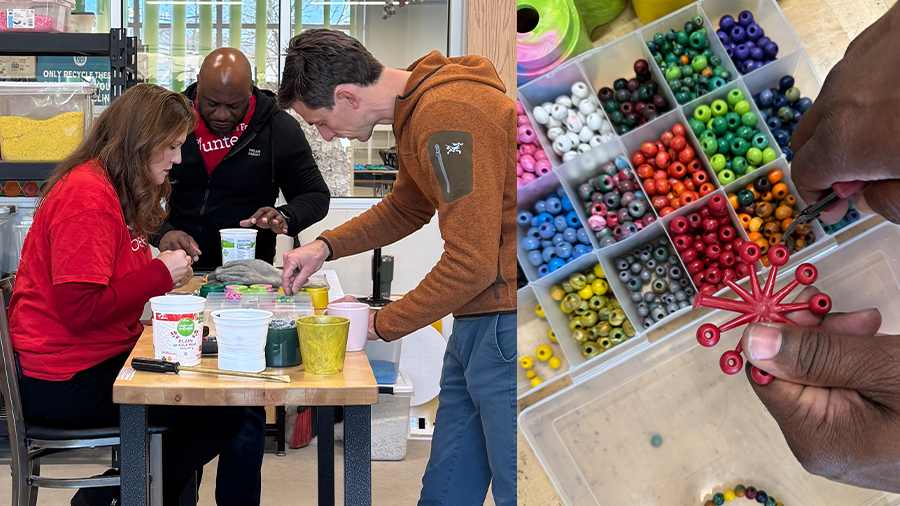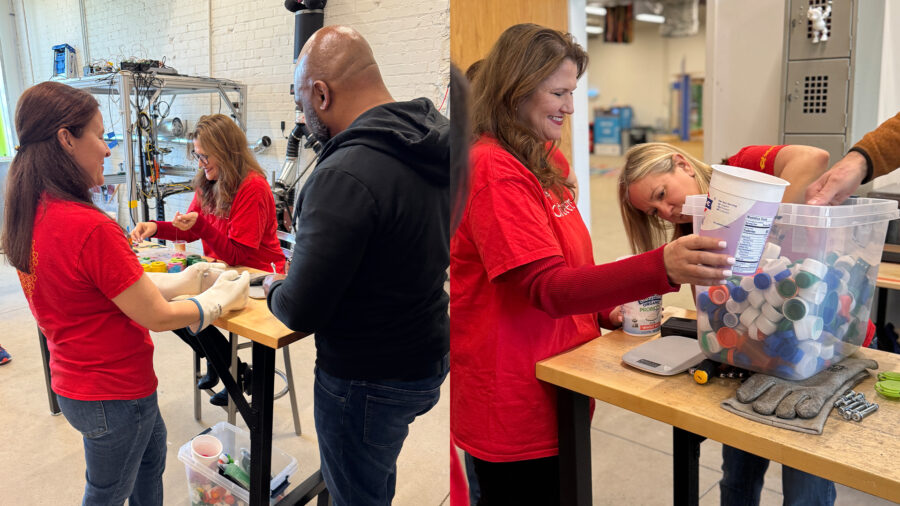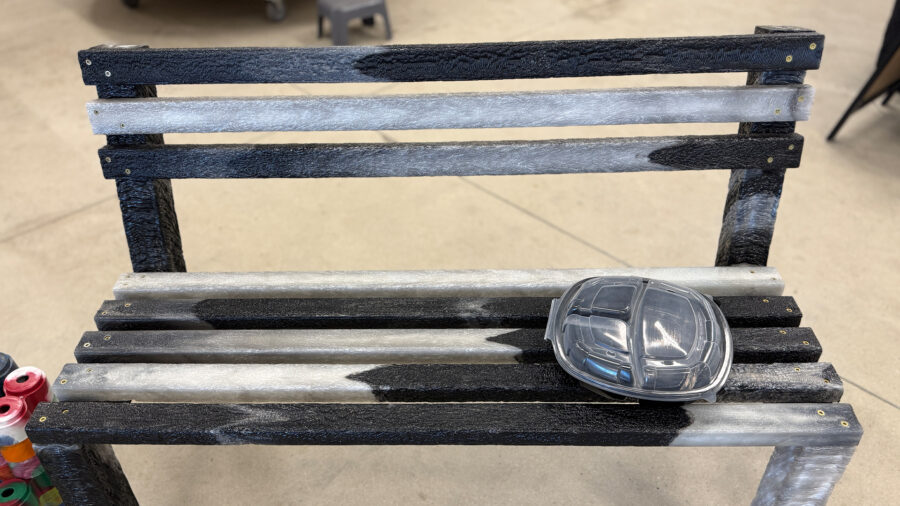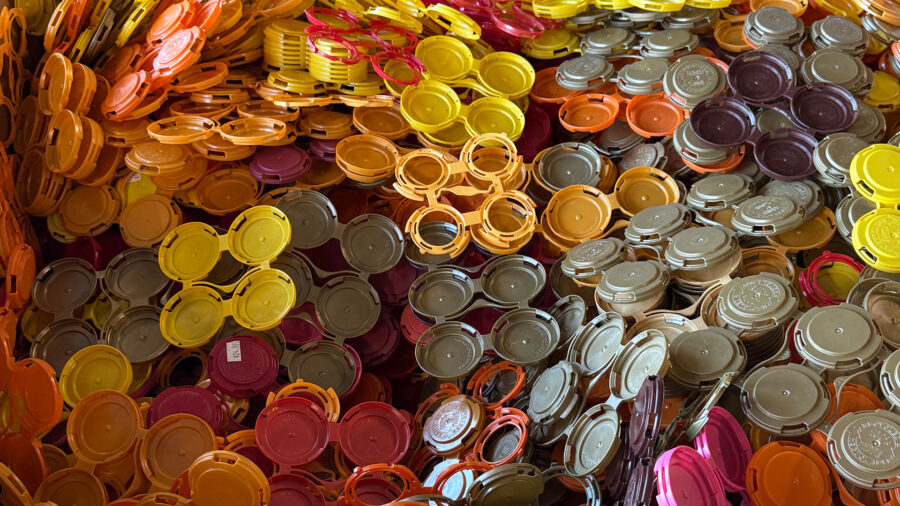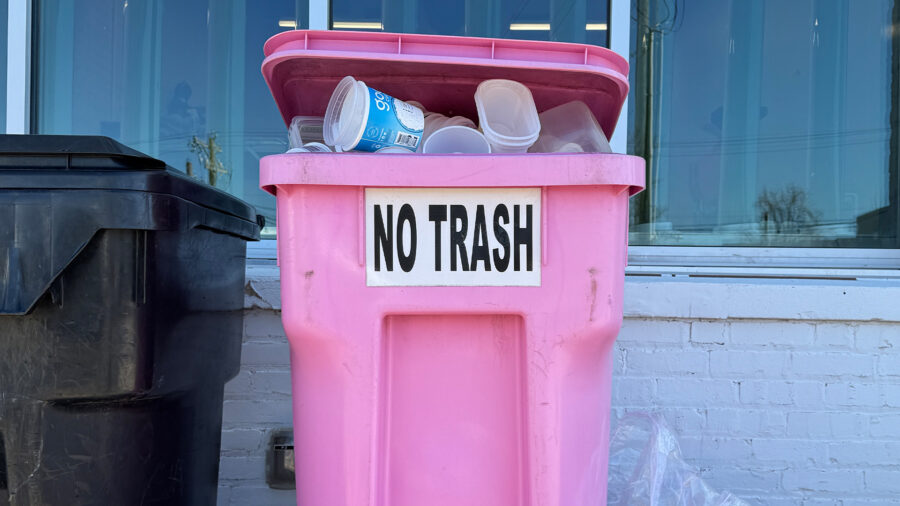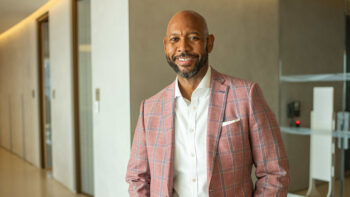What’s the circular economy and how can it reduce what you throw away?
See how trash like everyday plastic is transformed into treasure at the Innovation Barn. Then consider easy ways to support the circular economy near you.
Key takeaways
- Less in landfills: The Innovation Barn, a sustainability hub operated by Envision Charlotte — a nonprofit based in Charlotte, North Carolina — promotes the circular economy by reusing and repairing everyday items in creative ways.
- A sustainable cycle: By keeping more items in use, a circular economy can create less demand for new things, which means we use fewer resources.
- Creative reuse: A $12,500 grant from the Wells Fargo Foundation helped buy molds and machines to expand Innovation Barn’s programs and reuse options.
- Employee dedication: Dozens of Wells Fargo employees volunteer by turning single-use plastics and discarded items into toys and household goods to be used again and again.

If you’ve ever tossed that plastic lid on cans or yogurt in the recycling bin, you’re likely guilty of “wishcycling.” Don’t worry, it’s not your fault. We hope that by recycling something, it’ll get reused, but often it’s not. This kind of plastic isn’t easily recycled, so some ends up in a landfill.
But this trash can still be made into treasures. That’s where the Innovation Barn comes in. At the lab operated by nonprofit Envision Charlotte, volunteers break down this plastic and form it into colorful beaded bracelets, stacking toys, and more.
By reusing plastic and other materials designed for a single use, the Innovation Barn and its volunteers promote the circular economy. It’s the concept of keeping the stuff we all buy and use over and over, which means we throw away less and share resources more.
“The circular economy to me is very important in terms of helping us learn about how to manage our own waste,” said Meredith Ritchie, a member of Wells Fargo’s Charlotte Employee Impact Team who volunteers at the Innovation Barn. “To give us an opportunity to have this impact on our community is unparalleled.”
Easy ways you can support the circular economy
You don’t need an entire lab to up your sustainability game. Here are four tips to throw away less, inspired by the Innovation Barn.
‘We’re really trying to tip the scale’
Reusing materials takes creativity and community. At the Innovation Barn, locals drop off can holders, yogurt cups, and other reusable plastics to get transformed into new creative items. For one project, plastic containers are shredded down and remolded into a durable bench. According to the nonprofit, the organization and volunteers have kept 12 tons of takeout containers from being thrown away so far.
“We’re really trying to tip the scale and divert as much as possible away [from landfills],” said Daniel Heaton, deputy director of Envision Charlotte.
In 2018, less than 9% of plastics were recycled, according to the U.S. Environmental Protection Agency. By diverting plastic from recycling bins or garbage bins, there’s a lower chance of it winding up in a landfill. That’s what makes reuse opportunities so important.
In addition to Wells Fargo’s Employee Impact Team’s volunteer efforts, the Wells Fargo Foundation provided a $12,500 grant to expand Envision Charlotte’s plastic reuse programs.
The work also goes beyond plastics. Wells Fargo volunteers have woven gently used T-shirts into dog beds and sound panels, continuing the company’s decades-long history of recycling. Through another program, they sort through unsold produce from nearby grocery stores to be distributed to local donation-based markets.
“Knowing that all of that takes place here, it’s just a great opportunity to get your hands dirty while you learn,” said Anthony Sereno, who leads the Charlotte Employee Impact Team. “It’s one of the only places in the country that does this type of sustainability work.”
For Ritchie, a self-described “lifelong learner,” volunteering has taught her what not to toss in the recycling bin. And for Sereno, time in the Innovation Barn has led him to make more sustainable decisions, like composting and buying an electric vehicle (video; 2:11).
“I love volunteering, first of all, because it makes you make a difference in the other areas of your life,” he said. “I like to do good things for the environment.”


